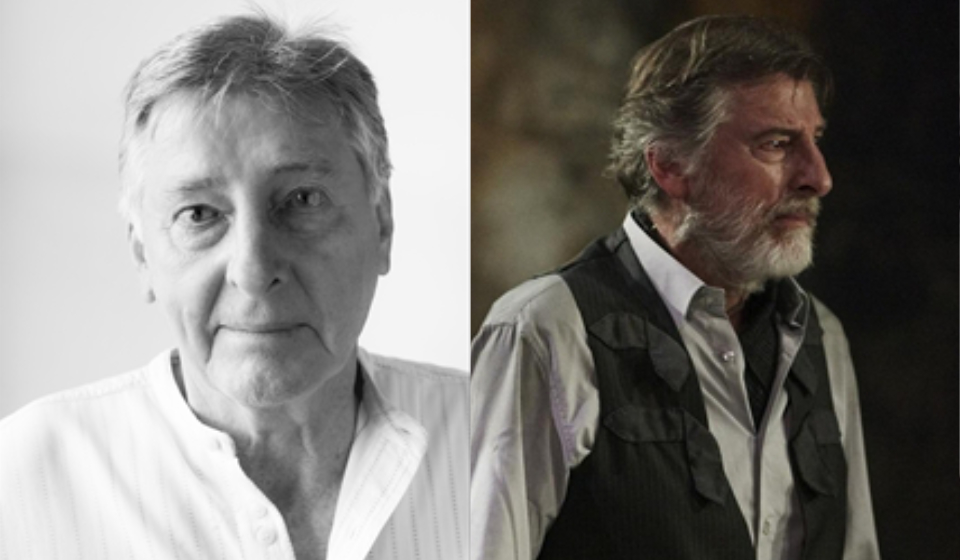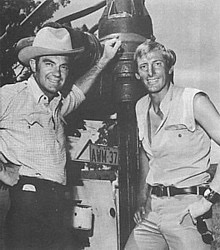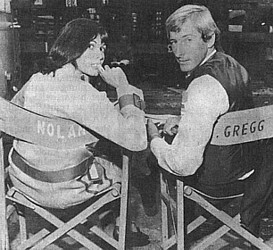
JOHN GREGG
1939 - 2021
John Gregg, greatly respected actor and former Chairman of ABF passed away on May 29.
He leaves behind his loving wife Jane Seldon, four children, the actor Sophie Gregg, Alice, Ben and Sam and eight grandchildren. He will also be mourned by his two stepsons with Jane, and his step-grandchildren.
John was a much loved Chair of the ABF for six busy years from 2013, having joined the Committee in 2008 at a time when Actors Benevolent Fund was trying to stabilise financially under the guidance of Noeline Brown. As Chair, John steered the organisation through a major rebrand and into a highly successful era in which the organisation’s profile was substantially raised and the bank account swelled. He passed the position on to Bruce Spence in 2019 and retired to enjoy a quieter life.
He was otherwise a very private man who rarely talked about his remarkable career as an actor. But remarkable it was.
Enjoying a career spanning some sixty years and two continents, John Gregg was a familiar face on our television screens. It was quite a journey for a lanky farm boy from a remote rural district in southern Tasmania. His resonant voice and patrician good looks became the key to opening a door that led from milking cows and ploughing paddocks to appearing on stage and film in both Australia and the UK.
John was born on a dairy farm near Campbell Town on Tasmania’s Midlands Highway. In his early years he earned pocket money by ploughing fields for neighbouring farms, and was far more interested in Aussie Rules, a passion that lasted a lifetime, cricket and rowing. Perhaps seeing something special in her tall and intelligent son, his mother encouraged him take up an offer of public speaking lessons through the Adult Education scheme. The teacher was a local vicar who was, fortuitously, a graduate of RADA. The vicar also saw something in John. “With that voice,” he said, “you could be one of two things: a minister or an actor.” John was sure he didn’t want to be a minister. Instead, at 18 years of age he found himself performing a monologue from Richard III at the Hobart auditions for NIDA.
John is quoted as saying,
“It was bizarre. I knew nothing about theatre and had never even seen a play. Later they sent me a telegram saying: 'You can come if you want to'. So I did."
John started at NIDA with its first intake in 1959, along with 16-year-old Robyn Nevin ("she was by far the youngest and very shy, very serious"), Elspeth Ballantyne, with whom he would later work in Bellbird, Elaine Cusack, Teddy Hodgeman and Peter Couchman, who became an ABC journalist. John’s classmates seemed very worldly in the eyes of the country boy. “I used to think some of them were much more sophisticated because they drank spirits and smoked French cigarettes.”
For John, NIDA was sometimes a confronting experience. Improvisation sessions terrified him. He would retreat to the back of the room to take notes and hope that he would not be asked to do anything. Many of his fellow students had appeared in amateur theatre productions before NIDA, and appeared very confident. John was still coming to terms with having to wear tights for ballet sessions.
After graduating from NIDA John was one of two students (the other was Nevin), chosen to work with the Elizabethan Theatre Trust, then based at the Majestic Theatre in Newtown. The Trust Players were under the direction of the legendary Robin Lovejoy, so this provided a great start to his professional career. He was also to appear in 1961, in The Merchant of Venice with the then prestigious John Alden Shakespeare Company. Alden was a noted tragedian and one of the last of the Actor Managers in the grand old tradition. It was in this production that John met his lifelong friend, actor and director Bruce Myles.
Throughout the 1960 and early 70’s John worked prolifically with the newly formed ABC drama department on such series as Contrabandits, a crime series in which John appears as a suntanned lean Aussie bloke with a Chips Rafferty air, more Crocodile Dundee than the scientist he would play in the series that followed, Delta.

In this John cut a suave figure as Jeff Mallow, a scientist at the helm of a scientific investigation group inexplicably called Delta. The series was highly successful and with Contrabandits became the foundation for a viable ABC Drama unit.


Another ABC series followed, The Oracle, in which John played the central role of a radio talk host. He and his co-star received the following review:
“John Gregg and Pamela Gibbons were an early example of a life in the fast lane brutally handsome, terminally pretty couple.”
While his television career was soaring he continued to work regularly in live theatre including two seasons with Melbourne Theatre Company.
Like so many Australian actors of that time John decided to head for London, a move that proved highly successful. In 1972 he appeared in Jumpers at the Royal Court with Diana Rigg. The Bacchae and Next of Kin followed. John also spent two years with the Royal National Theatre. During this time he took over the role of Edmund from Ronald Pickup in the famous 1971 production of A Long Day’s Journey into Night. Directed by Michael Blakemore, it starred Laurence Olivier, Constance Cummings, Dennis Quilley and Maureen Lipman.
John was also in the notable 1975 Royal Court production of Don’s Party again under the direction of Michael Blakemore. In 1976 he played in the BBC 2 television production of The Glittering Prizes alongside Tom Conti, Barbara Kellerman and Nigel Havers.
But perhaps his most memorable performance was as Lycett in Doctor Who helping the Doctor battle an invasive parasite called a wirrn that secreted a slime that transformed humans into more wirrn.
On returning to Australia John branched into musical theatre in the Victoria State Opera’s production of My Fair Lady, followed by How To Succeed In Business Without Really Trying for Gordon Frost and The Threepenny Opera for STCSA. In 1984 he played Jason to Zoe Caldwell's acclaimed Medea, in the production that opened the Melbourne Arts Centre.
Television included Joseph Banks in Captain James Cook and playing cricketing legend and journalist Percy Fender in Bodyline. The work continued steadily over the years with most recent appearances in Rake, Crownies, Old School, Operation Buffalo and many more.
His friend Bruce Myles was often his companion in recent years, when they enjoyed city walks admiring architecture or attending lectures at the State Library. They also shared a love of AFL, though they supported different teams, John being a staunch Sydney Swans supporter. Bruce recalls a particular match that John wanted to attend, but the tickets were sold out. Bruce persuaded a reluctant John that, as an Ambassador for the Swans, he should request tickets. John was amazed to receive not only the tickets but also an invitation to the Chairman’s lunch. John took Bruce as his guest. For Bruce this anecdote summed up the self-effacing attitude John had towards his own celebrity. “He never flashed about what he had done.”
In 1991 John and Bruce were cast together in a production of David Hare’s Racing Demon at STC. It was only the second time they had shared a stage. This production was to prove life changing for John. During the run of the show he met Jane Seldon who was then the Wardrobe Mistress. She was subsequently to become his wife. Together they shared an enthusiasm for The Swans and blissful holidays at their Lake Macquarie holiday house. John loved kayaking on the lake in the mornings as the mist lifted off the water and entertaining the growing family at crowded and noisy gatherings.
Like another Tassie actor before him, Errol Flynn, John continued to cut a dashing figure, leather-jacketed and riding a large motorbike about Sydney with a swashbuckling air. Bruce recalls him riding it to Melbourne to visit daughter Sophie when she was a student at VCA. John completed the journey in one go, arriving freezing cold and exhausted and very much in need of several very stiff whiskeys.
Bruce Myles also remembers more recently alighting from a bus to meet with John to take the Sculpture walk in Bondi. John was leaning against a fence post. “He looked like a bush cocky,” said Bruce. “He never lost that country boy.”
John Gregg’s journey from the bush to the stages and screens of the world was always a quiet achievement. On visiting him in hospital, a friend remarked that in her childhood he had been a matinee idol. This produced a smile and nod of the head followed by a gentle affirmation. It was as though this celebrity had happened to someone else. It was the mark of this modest and gentle man.
John Gregg was a distinguished actor and a true gentleman. He was always dignified, considerate and charming but with a wicked sense of humour and a streak of the Aussie larrikin. He will be greatly missed by all in our industry who had the privilege to work with him or call him a mate.